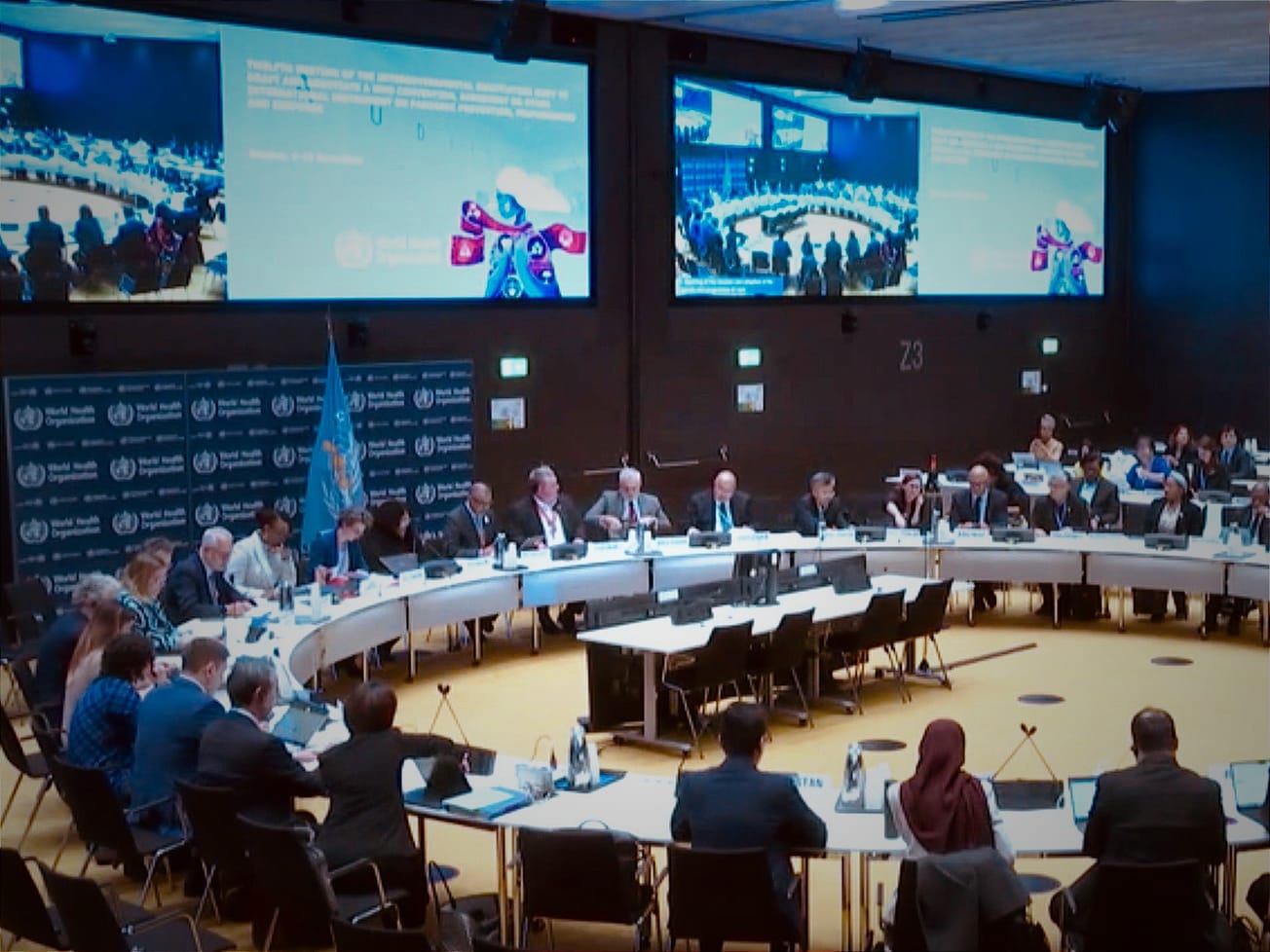GENEVA (AN) — Negotiators from the World Health Organization's 194 member nations resumed work on a landmark agreement about handling pandemics, hoping to gain passage before the end of the year.
WHO's Intergovernmental Negotiating Body took up the latest draft on Monday, continuing nearly three years of talks that were supposed to have been concluded by now but were extended until May 2025.









